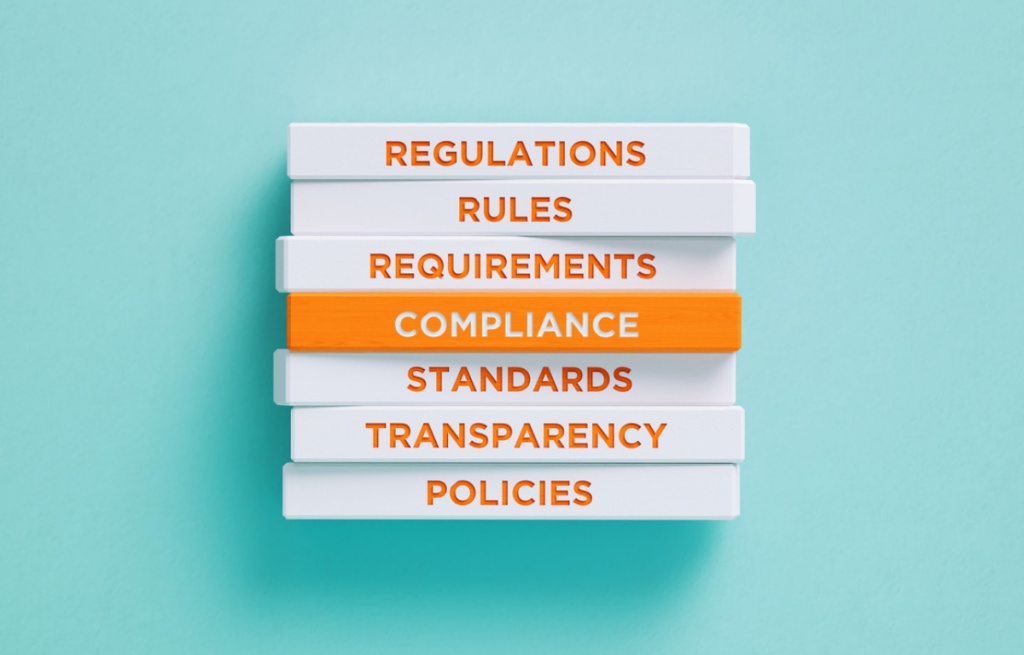By Tom Badstubner, Michael Dodd, Rick Schwietzer, and Steve Guglielmo
GAWDA’s consultants will be available during the 2025 GAWDA Annual Convention in Tampa. In this roundtable, consultants educate members on all of the end-of-the-year documentation and compliance measures that must be taken before the calendar flips to 2026, as well as legislation and trends that have emerged since the Q3 Issue of Welding & Gases Today.
The GAWDA Consultant Program is a GAWDA member benefit that is included as part of your member dues to the association. It is consistently rated as one of the most valuable member benefits that GAWDA provides. Thank you to Tom Badstubner, GAWDA’s FDA and Medical Gases Consultant; Mike Dodd, DOT Consultant; and Rick Schweitzer, Government Affairs and Human Resources Consultant, for lending their time and expertise to discuss these important topics.
We also give our thanks to Marilyn Dempsey, GAWDA’s outgoing DHS, EPA, and OSHA Consultant, for her years of service to the association. Following the Fall Compliance Seminar at Weldcoa, Marilyn will be leaving her position as consultant. Thank you, Marilyn!
The following is a lightly edited transcript of that conversation.
Welding & Gases Today: With this being our final Consultant Round Table of 2025, what do GAWDA members need to be aware of between now and Q1 2026? Is there any paperwork that they need to fill out during that time?
Michael Dodd: The only thing that will be coming due by the end of the year is the Unified Carrier Registration, which opens on October 1st and is due by the end of the year.
Tom Badstubner: Starting on October 1st, between October 1st and December 31st, is the FDA Drug registration season for the next year. Members should make sure that their facilities are being reregistered and relisted sometime between October and December. If a member is not using us as their registrar, then they want to check with their registrar to be sure that the registration is happening.
GAWDA members have until December 18th to adopt new procedures that comply with the new medical gas regulations (21 CFR 213, 230). We’ve known about these regulations since July 2024. We’ve written new procedures to comply. So, if any member does not yet have those procedures, reach out to [email protected].
There are a few things different, actually very different, about the new procedures, that members will want to make sure they look at. So don’t delay. Get them right now and take a look at them before the December deadline.
WGT: Mike, you sent over a Safety & Compliance alert for the September 1 issue of the GAWDA Connection, which discussed the Worthington Permit decision that we discussed in our Q3 roundtable. What do members need to know about that and how will it potentially impact them in 2029, when the permit is up for renewal again?
Mike: Yes, thankfully, that special permit 11692 was renewed and everyone got to use those lightweight steel medical Es again after about two weeks. Worthington has said they will not be renewing it again. I sent out a notice in the last Connection about the different options and there will be something more definite before this permit expires in 2029. Stay tuned.
Rick Schweitzer: This is something that DOT is aware of, and they’ve already begun to address it in a rulemaking. I filed some comments on behalf of GAWDA earlier this month, asking them to set up a process for just this type of scenario, where you have a special permit that has been in effect for a long time and there are many other companies that are parties to that special permit, but where the initial permit holder, for whatever reason, is no longer going to renew that special permit. DOT has never dealt with this before. But now they realize they need to. So, I think that they will come up with a process. We suggested that they have a process of notice to all the party status holders allowing them to renew it on their own, rather than just having it go away. So, between now and 2029, certainly well before that, I think that DOT will address this issue.
WGT: GAWDA is hosting its 2025 Fall Compliance Webinar/Seminar in October at Weldcoa. What is on the agenda for that meeting and why should members attend?
Mike: The Weldcoa seminar this October and our Chart seminar next March are always a great opportunity for the members to learn lots of great information on FDA, OSHA, EPA, Security, and DOT issues. My DOT Day this October will be all about filling high-pressure cylinders, carbon dioxide cylinders and liquid containers. The seminar next March at Chart will be all about recordkeeping and how to survive a DOT audit with flying colors. I love the in-person sessions because we get such great interaction in class, and the attenders get to rub elbows with other members. Both of the seminars will also be available through online webinars conducted simultaneously.
Tom: From an FDA perspective, we’ll be talking about the latest interpretations from the FDA, and how they apply to those new regulations. So, it’s going to be a full review of the new medical gas regulations.
And then, we’ll be also talking about setting up an Environmental and Safety Management Program. Marilyn Dempsey will be doing that.
Finally, Mike will be covering how to fill high-pressure cylinders. He does an amazing job of telling people how to fill cylinders, including CGA compliance and DOT compliance from his five decades in the business.
So, we’ll be covering what are good practices. Going line-by-line on the CGMP from an FDA perspective on the new regulations.
WGT: The meeting will also be simulcast via GoToMeeting. But you’ve always been a proponent of in-person attendance. So, can you share with members why you think that attendees should make the effort to come in-person?
Tom: Well, the networking that happens in person is really a lot better than can ever happen on GoToMeeting. You meet people, face-to-face, who are doing exactly the same thing as you are, and they have the same questions you have. You can mentor other people and be mentored by other people. Besides that, Weldcoa does a marvelous job in hosting us. Plus, the meals are absolutely delicious!
WGT: During the 2025 Annual Convention in Tampa, GAWDA’s Safety and Government Affairs committees will meet together, in-person. What topics are most pressing on the agenda that members should be aware of?
Mike: We will continue our sample safety practices and we would love to get suggestions from the members on topics that they would like to see come out.
Rick: Well, there are a couple of things. I already mentioned the HM265-B proceeding, with this party to status for special permits when the initial SP holder no longer renews it. We also filed comments with PHMSA on incorporating into the HAZMAT regulations a couple of additional long-standing special permits. One is DOT-SP 9001, which allows for the use of non-DOT spec cylinders, if they meet the specs of a 3T cylinder. This has been in effect since 1983. There’s no reason to continue renewing this as a special permit. It just needs to be incorporated into the regulations. And, similarly, DOT-SP 14175. It’s a 10-year requalification for 3A and 3AA specification cylinders if you use ultrasonic examinations. This would be instead of a five-year requalification, you’d only have to do it every 10 years. This has been in effect for at least 20 or 30 years, and it’s time to incorporate that into the HAZMAT regs.
Then, we need to discuss the electronic shipping papers. DOT had previously denied a petition for rulemaking to allow members to use electronic documents instead of a paper copy of your shipping paper to accompany a HAZMAT shipment. We have considered getting a company to petition for a special permit to do this. I would much prefer to get DOT and the new administration to look at this as a regulatory reform measure and to change the rules to allow everyone, on a blanket basis, the option of using electronic shipping papers. It’s absurd, in the 21st century, that they still have requirements for paper copies to accompany a shipment, even though you’ve already got your placards on the vehicle, and your emergency response information, and emergency response guidebooks. There are several redundant ways of making sure that emergency responders know what’s on the vehicle, and there’s no real added safety benefit of having a paper copy of your shipping papers accompany the shipment.
So, those are all things that we have put into our comments to DOT. And then, secondly, there’s sort of an ongoing war going on between the States and the Trump Administration over a number of federal policies. Obviously, this involves politics. It involves California and Gavin Newsom wanting to run for president in 2028. But it’s not just California. It comes down to whether or not we’re going to have a nationally uniform system of regulations or allow for deviations by the state that are not necessarily set out by Congress in the statutes or by the regulatory agencies.
I’ll give you two examples. One, DOT has a new requirement for enforcement of English language proficiency by commercial vehicle drivers. If they are found to be in violation of that, then they’re placed out of service. They cannot move the truck. Previously, it was just a fine. Since this went into effect in June, the Secretary of Transportation said that there were 1,500 drivers that have been placed out of service. And that was several weeks ago. So, I’m sure that number’s higher now. Three states, California, Washington, and New Mexico, have refused to enforce this. In fact, the California Highway Patrol came out with a statement that said, “This is not state law, we’re not going to do this.” Well, it’s federal law. And, under our Constitution, federal law and the Constitution are the supreme laws of the land. And States and local governments cannot contradict them.
So, we’ve got this constitutional issue initially. Now, the Secretary of Transportation is threatening the funding for state motor carrier safety enforcement programs. It’s called the Motor Carrier Safety Assistance Program, or MCSAP. And there’s about $50 million at stake for these three states in this funding, if they continue to not enforce this English language requirement as an out of service order. It’s likely that the Trump Administration will up the ante and attack some other source of federal funding to the states to force them into compliance.
On the EPA side, similarly under the Clean Air Act, California and all the other states have what’s known as a “State Implementation Plan,” where they implement the requirements of the Clean Air Act. But they incorporate a number of state laws and enforcement mechanisms in their plans. And the plans have to be approved by the EPA. California has a truck inspection and maintenance program. It applies to all trucks over 14,000 pounds. It’s got registration requirements, but it’s mostly got a testing requirement. And trucks are subject to roadside emissions checks when they come into California. Well, this State Implementation Plan doesn’t just apply this to trucks that are registered in California, but to any truck from out of state or even out of the country that operates in California . EPA has now proposed disapproving the State Implementation Plan to the extent that this inspection and maintenance program applies to out-of-state trucks. They say it’s an undue burden on interstate commerce. So again, it’s a constitutional question. It’s a question of whether or not, and to what extent, states are allowed to have exceptions or deviations from this nationally uniform regulatory system. And these are two developing areas of the law and I’m sure the courts will be involved in this, but ultimately it’s up to Congress to regulate Interstate commerce. States do have coexisting authority to do that, but federal law is constitutionally supreme, so ultimately the federal government has the much stronger argument here. But we’ll see how it plays out.
WGT: Not to singularly focus on California, but let’s use California as an example, for GAWDA members who are operating in California who manufacture in California, in this time until Congress or the courts intervene, are they bound by state or federal law?
Rick: If you’re operating in California right now, you are still subject to state law until this is decided once and for all.
WGT: So, while we’re on the topic of compliance, Tom or Mike, have you seen any compliance or enforcement trends emerge since we last spoke that members should be aware of?
Mike: Yes, DOT audits are definitely up. Many in-person and a few remotely. Some members do great, and some members could have used some refresher training on recordkeeping. That is why the seminar next March at Chart is such a great resource for the membership. I will be going over all the DOT recordkeeping and how to survive a DOT audit.
Tom: I’ve seen some really difficult inspections recently. And it really comes down to the members paying daily attention to their compliance records. If they pay daily attention to the compliance records, then the inspection goes well. But, if the records aren’t reviewed in a timely manner, or the training doesn’t happen in a timely manner, or the calibrations don’t happen in a timely manner, the FDA can be very difficult… as they should.
WGT: When you say difficult inspections, or more heavy-handed inspections, is that just in comparison to the last several years, and this is a return to form? Or is this more heavy-handed than we’ve been accustomed to seeing?
Tom: Where they find non-compliance on records, they seem to require a very detailed look at their other regulations. We have seen very minor technical issues become significant violations when the basic records are not in order.
WGT: So, you both have said inspections are up and more rigorous. Rick, why do you think the Federal Government is increasing the frequency and intensity of these audits? Any ideas?
Rick: I really don’t have a good answer for you, Steve. I don’t think it is politically motivated in any way. I think it just might be coincidental. I can’t think of any funding or policy initiative where they are trying to increase enforcement. Certainly, even though the Trump administration has put in a regulatory freeze and is trying to impose a reduction in the regulations that businesses are subject to, that doesn’t mean that they cannot also increase enforcement of the existing regulations and improve safety. So, I don’t know, that’s a good question.
Tom: I actually think some of it is a bounce-back from the lack of inspections that happened during COVID.
Rick: That makes sense.
WGT: We’ve covered an awful lot of ground here. Is there anything else that GAWDA members should be aware of that might be coming down the pipe or on the horizon that they should at least be paying attention to?
Rick: You know, there was a decision from the Court of Appeals this week on tariffs, striking down some of the Trump Administration tariffs, under one particular statute. They ruled that Congress had not authorized these tariffs. Now, this does not affect the steel or aluminum tariffs that are in effect. It’s more the reciprocal country-specific tariffs. And the court’s decision still allows them to charge those tariffs through October. I suspect this is going to be something that the Supreme Court will have to take up on further appeal. But it’s just something that we’re following now and depending on what products you’re importing or exporting, it could affect you. But I want to reiterate, it doesn’t apply to the steel or aluminum tariffs, themselves.







